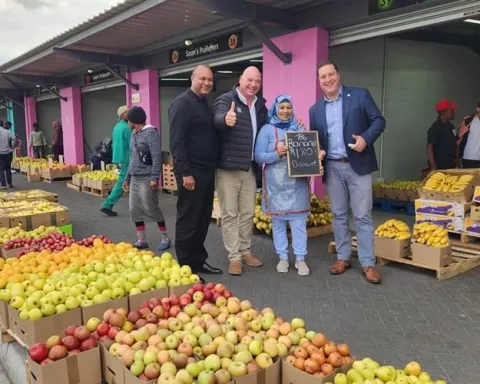Cape Town is taking a significant step towards improving the lives of its residents by making steady progress on the Cape Flats Bulk Sewer upgrade. This ambitious project, valued at R715 million, is set to benefit 300,000 households in lower-income neighborhoods.
Historical Significance of the Project
Mayor Geordin Hill-Lewis emphasized the historical significance of the project, as it aims to replace bulk sewers first constructed during the apartheid era in the 1960s. The upgrade ensures that these infrastructures will last for the next century, benefiting future generations of Capetonians.
Future Investments
Between 2023 and 2025, Cape Town plans to invest R1.3 billion in major bulk sewer upgrades for the Cape Flats, Philippi, Milnerton, and Gordon’s Bay lines. Approximately 73% of the city’s infrastructure budget, amounting to over R8 billion, will go towards critical upgrades for lower-income households, informal settlements, and poorer communities. These upgrades are expected to create an estimated 135,000 jobs in the city over three years.
Innovative Technology
Innovative trenchless technology is being used for the Cape Flats upgrade, ensuring minimal disruption to residents and businesses. This method avoids invasive excavations, is three times more cost-effective than traditional construction work, and leaves minimal visible signs of maintenance. The project incorporates cutting-edge techniques such as robotic crawlers and laser profiling to assess the state of the underground pipelines.
Rehabilitation of Pipeline
Trenchless technology employs various methods, such as Cured In Place Pipe (CIPP) lining, Calcium Aluminate Cement (CAC), and Spirally Wound Liner (SWL), to select the best rehabilitative solution for different sections of the pipeline. Cape Town will replace 100 km of sewer pipes every year across the metro, with a total investment of R850m over three years.
Reduction in Spills
The replacement is part of a strategy to reduce sewer spills, including proactive cleaning of sewer lines, major bulk sewer upgrades, resourcing response teams, and digital telemetry systems for early warnings. The city has already experienced a notable 30% reduction in reported spills in the past two years, based on preliminary data.
Implementation of RIMA
The Reactive Incident Management System (RIMA) is being implemented to digitize the coordination of sewer spill responsiveness, allowing for better tracking of progress. For the 2022/23 financial year, Cape Town is executing 36 pipe replacements, with 22 already completed and 14 set to finish by 30 June. The city’s ambitious target of 100 km of sewer pipe replacement for 2023/24 promises to bring significant improvements to the lives of its residents and further solidify its commitment to a more equitable future.












